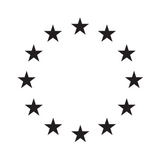Sustainability
When The Lingerist was founded, it was our goal to provide a stage to independent and innovative lingerie brands that care about sustainable and ethical practices as much as we do. You can read more about the sustainability and production of each product on its product page.
Our packaging is made from recycled cardboard and paper, using as little adhesive as possible. We minimize our carbon emissions, by paying a contribution with every package we send. This makes our shipping CO2 neutral, and supports reforestation projects in collaboration with Pachama.
How do we assess the impact of our brands?
We assess the impact of the production of our brands with the help of our CONSCIOUS CRITERIA.
Before we launch a product on our website, we send a questionnaire to the brand which they fill in per product.
This allows for a unified assessment which helps us to understand the impact of each product on planet, people and animals.

recycled materials
What does it mean?
One of the most sustainable ways of producing new fashion collections is to make them out of components that would have usually gone to waste. We consider featured products as recycled if the fabrics contain at least 30% pre- or post-consumer recycled materials, with the exception of recycled cotton at 20%.
Which are some of the certifications do we consider?
Global Recycle Standard (GRS)
Cradle to Cradle (C2C)
Recycled Claim Standard (RCS)
What are some examples for lingerie fabrics?
ECONYL
Q-Nova
Roica EcoSmart
Recycled Polyester
Recycled Cotton

organic materials
What does it mean?
The plants that are the origin of the fiber of the textile have been cultivated through organic agriculture. We consider a fabric organic if at least 70% of its fibers come from certified organic farming.
Which are some of the certifications do we consider?
Global Organic Textile Standard (GOTS)
Organic Content Standard (OCS)
Forest Stewardship Council (FSC)
Responsible Wool Standard
EcoCert
World Fair Trade Organization
Certified Animal Welfare Approved
What are some examples for lingerie fabrics?
Organic Cotton
Organic Peace Silk
Organic Linen
Organic Bamboo (excl. Bamboo Viscose)
Organic + Ethical Wool

sustainable materials
What does it mean?
We consider sustainable materials as fabrics that are neither organic, nor recycled, yet have a minimal impact on the environment. Textile designers and researchers around the world develop an amazingly huge range of new technologies every year to create new (semi-synthetic) fabrics that are sustainable.
Which certifications do we consider?
This strongly depends on the fabric and the technology behind it but most are certified with Oeko Tex 100, Forest Stewardship Council (FSC), Worldwide Responsible Accredited Production (WRAP) and more.
What are some examples for lingerie fabrics?
Lyocell or also known as Tencel
Modal
EcoVero
S.Cafe
...

vegan
What does it mean?
Clothing that is made from cruelty-free sources, so no animal products were used in making the garments and components (such as glue, elastics, dye stuff), and no animal was harmed.
Which certifications do we consider?
Peta Approved Vegan
The Vegan Society
What are some examples for lingerie fabrics?
Many such as organic or recycled cotton, recycled polyester, lyocell, etc. as long as no animal products were used in the production and no animal was harmed.

clean production
What does it mean?
It's not only the raw materials of the fabric that have an impact on our planet but also which chemicals were used in the process, how is the waste water management of the facilities that spin the yarns and weave or knit the fabric. We consider cleanly produced items as those which do not impact the environment and humans in any harmful way.
Which certifications do we consider?
Bluesign
Oeko Tex 100
Forest Stewardship Council (FSC)
The Higg Index - especially Higg Facility Environmental Module (FEM)
Climate Neutral certification
B Corporation

ethical labor
What does it mean?
For a product to receive the ethical labor batch, the brand's manufacturer must have their manufacturers must have the highest certifications like those listed below. While ALL of our products are ethically made, we highlight extraordinarily well certified brands and manufacturers. We want to guarantee that the women and men making the products on our website are paid fairly, treated with respect, have safe working conditions, humane working hours, are not forced into labor or face discrimination.
Which certifications do we consider?
Fairtrade
Fair Wear Foundation
Fashion Revolution (not a certification)
The Higg Index
Child Labour Free
B Corporation
Worldwide Responsible Accredited Production (WRAP)

made to order
One of the biggest challenges of the fashion industry is textile waste. Overproduction, discounting and cheap garments are the major contributors to ever growing landfills. We therefore consider made-to-order production an important criteria for conscious production. Instead of producing up front and then offering their collection for sale, made-to-order means that a brand first receives an order and then starts making it - often in their in house sewing room which minimizes waste and CO2 emissions. While there are no specific certifications (that we know of), made-to-order is part of a company's business model.
Which of our brands operate this way?
Flash You And Me
Anna Gulbe
Lunar Laces

made in Europe
Local production reduces CO2 Emissions and ensures that strict European laws apply to working conditions, chemicals used for dyeing and material safety.
We consider products made in Europe if at least 80% of the material contents are sourced from European countries (this includes Turkey) and all production is done within the European Union.
